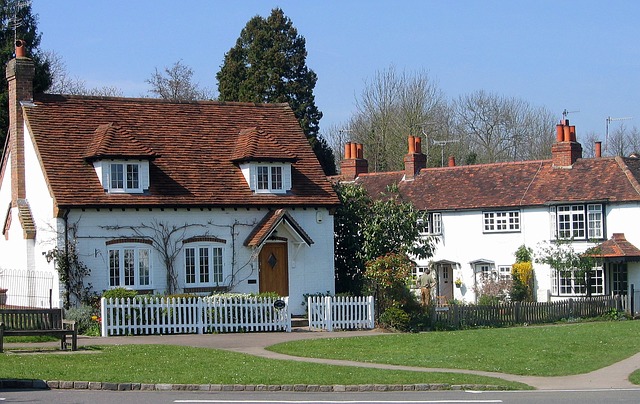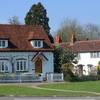clear

source:
DemandPoetry / Pixabay
Second home owning can be extremely harmful for smaller communities with a limited housing stock in terms of house prices. The ability of young people who grew up in that community to afford to get a foot on the housing ladder, or even afford a place to rent, can be severely impeded if the housing stock is bought up. If those buying those houses are preventing others from affording to live in the town or village they grew up in, when the homeowners aren't even living in that community, it can cause considerable resentment.
It can also lead to a demographic shift. Increasingly smaller communities are aging in Britain, as younger people are forced to move out to nearby towns in order to find affordable housing to buy or rent. This denudes small commuters of the younger adults who often make a place dynamic, as well as denying people an opportunity to live their early adult lif in the town or village they grew up in. Many young people who move away from a small community will also not move back, intensifying that demographic shift to an aging village.
 1
1
clear
 Andrew Tildesley
6 years, 11 months ago
Andrew Tildesley
6 years, 11 months ago
When people buy second homes in small villages and towns, it can hugely detriment the long-term residents living in the area. Towns in Cornwall in the UK for example have picturesque landscapes and this along with the hot weather draws in tourists and UK holidayers. However, these locations (such as Padstow) are not just drawing in tourists, they're drawing in rich homeowners from London and major cities who end up buying a second home in these places. Their idea for these second homes is to have place to stay in for weekends out their big city lifestyles that they can call home.
The meaning of a second home, is that it is not their main place for residency. Whether it is a place for weekend stay, or just a couple weeks stay in the summer months, the majority of the year is not spent at this home. Therefore, we have ghost houses. Empty homes which only house people a few days or weeks of the year. That is a huge detriment to communities when there are a large number of second homes in one area. Out of season, there are no full-time residents to keep the local business alive, and no real sense of a community.
 0
0
clear
Of course. If people can afford a second home, they often have expensive taste but little need for cheap and practical necessities, and in many pretty villages there are several delicatessens but no supermarkets stocking a good range of basics to cook with. The second homers also visit only in summer holidays and at Christmas, so the rest of the year the village is like a ghost world - local pubs can't thrive if a village is half empty and so many close down. The second homers also pay little interest in local affairs, unless something is planned like a new building spoiling their lovely view of the sea, so they don't put money, energy or resources into the community.
 0
0
clear
When it comes to the impact on rural areas from second home buyers, there are positives and negatives. Many villages and towns rely on the injection of wealth that follows when more prosperous city dwellers move into their communities, if only for holiday seasons and weekends. When extended families and friends swap the urban rat race for the tranquility and relaxation of second homes, the local economy will benefit from a sudden influx of people with disposable income to spend in cafes, restaurants, pubs and souvenir shops.
On the other hand, this activity will also have a detrimental effect on property prices, as the market will become skewed towards wealthier buyers from outside the vicinity at the expense of locals, many of whom will be employed in traditional industries and earning considerably less than city professionals. The whole situation can become reversed as locals, priced out of their own housing market, are forced to move into larger population areas to find employment or affordable housing.
People who are only living in a certain locale on a transitory basis will be less inclined to get involved in issues unique to the local economy, such as fishing or agricultural questions; although it has to be said that some second home owners enthusiastically embrace their 'home from home' and become very active in parish affairs.
 0
0
clear
The housing market is an intrinsic problem, as opposed to just having problems that are derivative of the system. The housing market is the cause of genocide and terrorism in other parts of the world, and thus should be abolished
 0
0
clear

Sign up to post or vote on answers.
Improveo will help systemize your knowledge.
